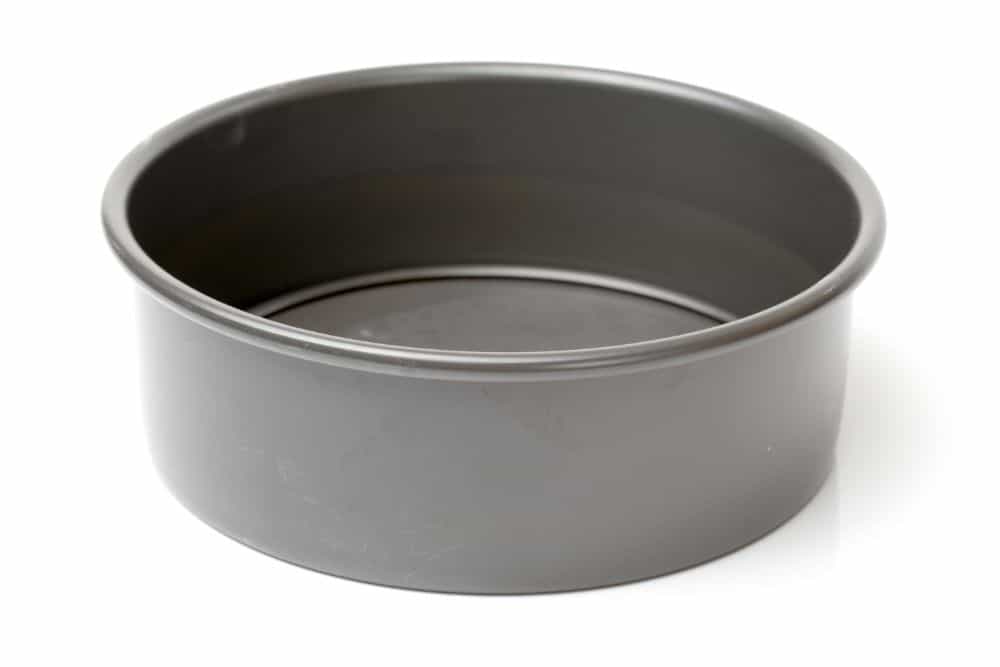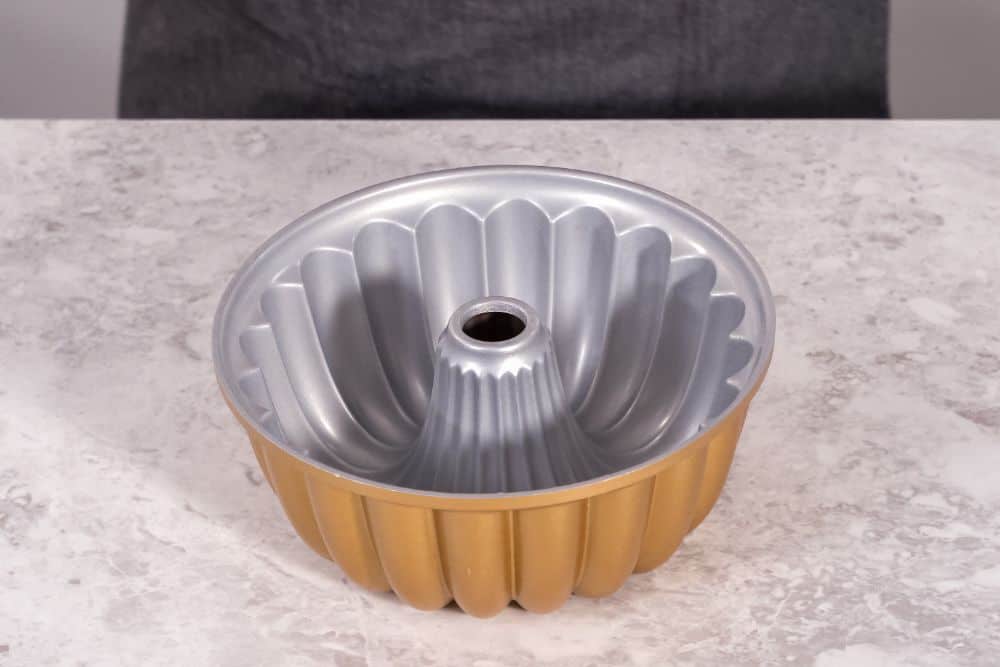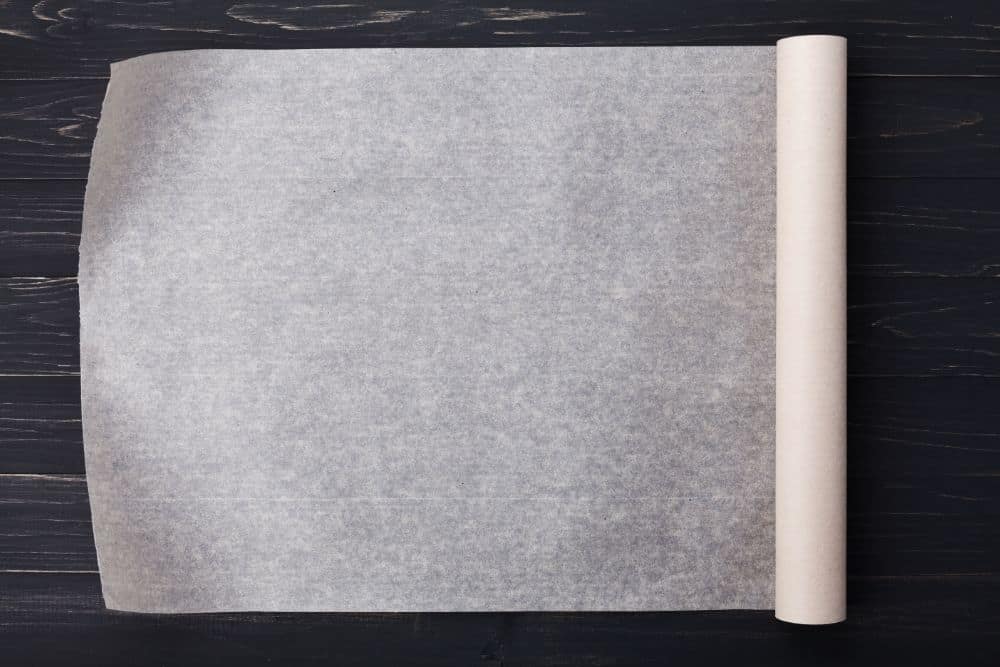Don’t ditch your pie just because you don’t have the right pan! Baking is more flexible than people may think, and you can use a deep dish pie pan substitute to make your yummy dessert or savory pie.
Even if you don’t have the most stocked kitchen, you likely have one of the twelve deep dish pie pan substitutes on this list.
Before discussing the best deep dish pie pan substitute, it’s important to differentiate between a deep dish pie pan and a regular pie plate. Both are usually 9 inches wide but can be as large as 10 inches wide.
The difference comes down to the depth of the dish. A deep dish pie pan is between 1.5 and 2 inches deep, sometimes even 2.5 inches.
But a regular pie plate is only 1 to 1.5 inches deep. Most commonly, a regular pie dish is 1.25 inches deep.
When following a pie recipe, deep dish pies usually have more filling and a thicker crust. The result should be soft and thick and mostly consist of filling rather than pie crust.
But with a regular pie dish, the crust should be crunchier with less filling. The pie crust is also usually thinner, but not necessarily. When using a regular pie dish, the result is firmer and neater than a messy deep dish pie.
Don’t worry, both pies are delicious! They're still pies, after all.
If you find yourself with a deep dish pie recipe in hand but no deep dish pie pan, some substitutes will allow you still have your thick and juicy pie. Below are the twelve best deep dish pie pan substitutes to try.
Perhaps the best deep dish pie pan substitute, a cake pan has the depth and width to execute a beautiful deep dish pie. For a cake pan, you can make as much filling as you want and the thickest crust your heart could desire. It will all fit into the pan!

An Empty Cake Pan
Because cake pans are metal and deeper than deep dish pie pans, you should lower the temperature slightly to prevent the bottom of the pie from burning. Also, line the pan with baking paper to keep the crust soft.
Many people turn to cast iron pans when they need to make a pie. Cast iron pans conduct heat beautifully, so your pie will cook evenly and come out a beautiful golden brown.
Cast iron pan sizes vary but try to get as close to nine inches as possible. Most cast irons are about 2 inches deep, making them the perfect substitute.
Disposable foil or aluminum pans are a decent substitute for a deep dish pie. But it’s best if the aluminum pan is extra deep. But if it's not deep enough, a clever hack is to raise the sides using aluminum foil, but you have to be handy to do this.
Aluminum won’t conduct heat as quickly as other pie pan materials, so you may need to cook the pie for an extra 10-15 minutes.
Any glass pan you have can be a substitute as long as the dimensions are similar to a pie pan. Any glass pan should work: a round pan, square pan, or rectangular pan.
Just make sure your glassware is oven safe before using it. And you may want to let the pie cook for longer as glass isn't the best heat conductor.
Tart pans are often mistaken for pie pans, but they are different. A tart pan has straight sides, while pie pans have sides that slope upward, creating that classic pie shape. But tart pans are about the same width and can have any depth from 1inch to 2 inches.
The deeper the tart pan, the better it will work for your deep dish pie, and you won't need to adjust any temperatures of baking times.
Springform pans can be a useful substitute, but it can get tricky when using these. Springform pans are cake pans that have a latch on the side, so you can remove the bottom and sides without forcing the cake out of the pan.
But sometimes, this flexibility allows pie crusts to fall apart. But if you have a sturdy crust, the pie will come out fine. You may want to lower the temperature because these pans are metal and could burn the thick crust.
A muffin pan for pie? This one is a bit unorthodox, but still an option. For this, you have to change up the recipe quite a bit. Rather than one or two large crusts, make several small ones go in the muffin pan. You should be able to use the same amount of filling.
Adjust the temperature to be slightly lower, so the pies don’t burn but keep an eye on them to ensure the baking time isn’t too much.
Another option that seems crazy but will work is a bundt pan! A tube pan or a bundt pan, which are almost the same, can make a deep dish pie, but it will have a hole. Make sure you fill the bottom of the pan with the crust and let it climb up the sides of the center.

A Bundt Cake Pan
You usually don’t need to adjust the temperature, but shorten the baking time by a few minutes because the hole in the pan will help the pie cook faster.
For a super deep pie, you can use a loaf pan. Loaf pans are for banana bread, other kinds of bread, and meatloaves, but you can also make a pie with one. Your pie will likely have to be smaller unless you use two loaf pans for two separate pies.
But you can add a whole bunch of filling into one and have the deepest pie ever! Lower the baking temperature, so the top of your pie doesn’t burn while the bottom pie crust is still raw.
Practically any size casserole dish can work in place of a pie pan. Whether you have a square pan or rectangular pan, they’re typically deep enough to work for a deep dish pie.
But if you only have large baking dishes, you may need to double both the crust and filling recipe to ensure you make a deep dish pie and not a thin one with mostly crust. But then you’ll have double the pie!
In the end, if you don’t have any of the other alternatives, you may have to settle for a regular pie dish. To make this work with your recipe, you may have to use a little less filling or roll out your crust, so it's thinner.
Unfortunately, this means your deep dish pie won’t be deep dish. Some regular pie pans are a little deeper than others, so you may still achieve a relatively deep pie when using a standard pie dish.
This substitute might be the trickiest, but if you’re crafty, you can make it work. Baking paper or parchment paper is oven-safe. You can make mini pies on a cookie sheet with sturdy pie dough.

Baking Paper
The other option is to try and form a pie dish using several pieces of paper and some clever folding techniques. However, if you have any of the other options on this list, you should use one of those.
If you’ve been scratching your head through this whole article wondering what a deep dish pie is and what the deep dish pie can work for, below are the best dishes to make with this type of pan!
Fruit Pie: If you’re all about the filling and care less about the crust, you can make super gooey fruit pies like cherry, apple, and blueberry pie.
Sweet Pie: For a massive slice of your favorite sweet pie, use a deep dish pie pan or deep baking dish to make chocolate pie, lemon meringue, key lime pie, or coconut cream pie.
Savory Pie: Deep dish savory pies are out of this world. You can make a deep dish chicken pot pie, minced meat pie, or potato pie.
Pizza: If you love deep dish pizza, use your deep dish pie pan to make one with a thick crust and gooey toppings.
Bread: You can use a deep dish pie pan to make cornbread, banana bread, or fancy bread like focaccia!
Below are a few more questions people ask about pie dishes and baking with them.
Pie dishes can be glass, ceramic, or metal. All have benefits, so there is no right choice. Metal dishes conduct heat more efficiently, which means pies will cook faster and be crispier. But for slow-baking pies, like deep dish ones, ceramic and glass are the better choices.
A good substitute for a regular pie pan includes all of the substitutes for a deep dish pie pan. All the substitutes discussed above would work for a regular pie, but bundt pans and casserole dishes are probably the worst choices because they are so deep.
